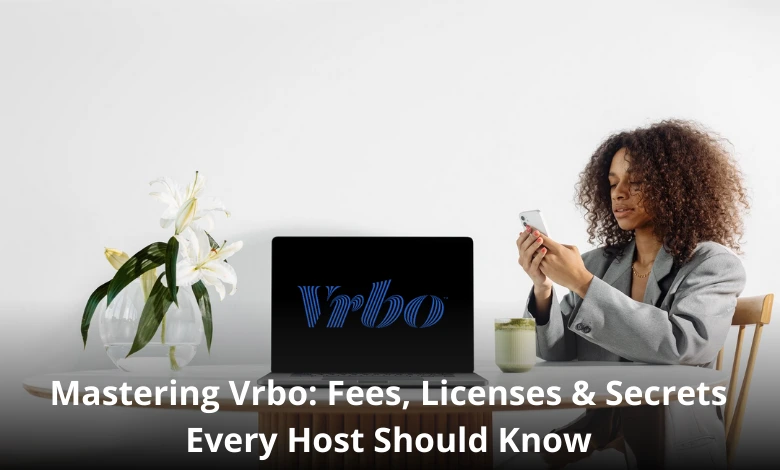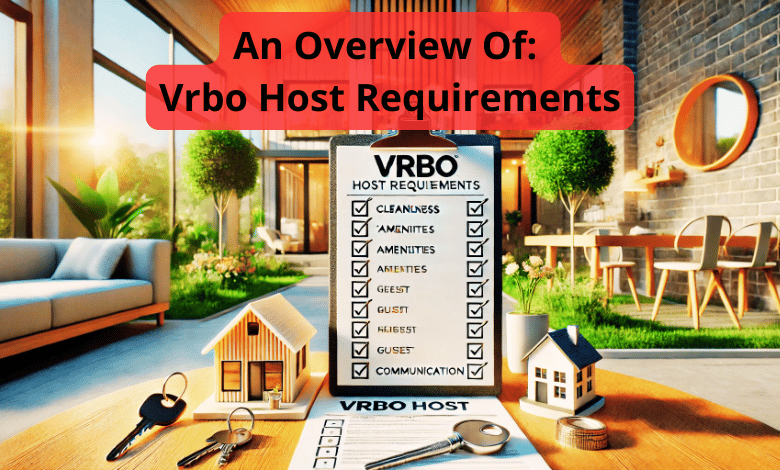If you’re considering listing your property on Vrbo (Vacation Rentals by Owner), you’re taking a proactive step toward earning rental income from travelers worldwide. Vrbo is one of the most popular platforms for short-term vacation rentals, rivaling others in the marketplace by connecting property owners and managers with guests looking for a comfortable place to stay. However, before you jump in, it’s important to understand what Vrbo requires from its hosts, what fees you can expect, and how you can stay compliant with local regulations. This comprehensive article will answer commonly asked questions such as what it takes to list on Vrbo, how much it costs, whether licenses or LLCs are required, what the host fees look like, and more. Read on for an in-depth overview of Vrbo listing requirements and host obligations.
Table of Contents
- 1. Introduction to Vrbo
- 2. What Do You Need to List on Vrbo?
- 3. How Much Does Vrbo Charge Per Listing?
- 4. What Is the Listing Policy for Vrbo?
- 5. Does Vrbo Require a License?
- 6. Do I Need an LLC for My Vrbo?
- 7. What Is the Host Fee on Vrbo?
- 8. Tips for Creating a Successful Vrbo Listing
- 9. Navigating Local Regulations and Taxes
- 10. Conclusion
1. Introduction to Vrbo
Vrbo, which originally stood for “Vacation Rentals by Owner,” has been around since 1995, making it one of the earliest online platforms for property owners to rent out their spaces to vacationers. Over the years, it has grown significantly and is now part of the Expedia Group, one of the largest travel companies in the world. With millions of travelers browsing Vrbo listings annually, it can be a highly lucrative channel for generating rental revenue—provided you meet all the necessary guidelines and invest in a quality listing.
The Rise of Short-Term Vacation Rentals
The short-term rental market has exploded in popularity, driven by travelers seeking more home-like accommodations instead of traditional hotels. Whether it’s a family looking for a spacious vacation home or a couple seeking a cozy cabin retreat, Vrbo connects these guests with available properties. As an owner or property manager, listing your home on Vrbo means tapping into a global audience of potential renters. But there are a few key things to nail down before listing, from legal compliance to pricing structure, to make sure your experience runs smoothly.
2. What Do You Need to List on Vrbo?
To start renting out your vacation property on Vrbo, you’ll need a few essentials. While different regions and municipalities may have specific requirements beyond Vrbo’s scope, there are some universal necessities:
- A Valid Property
You must own or legally manage the property you’re listing. This includes having the authority to rent it out. If the property has a homeowners association (HOA) or landlord that regulates short-term rentals, you might need their explicit permission. - Basic Property Information
You’ll need accurate details about your property, such as its exact location, number of bedrooms, number of bathrooms, square footage, and available amenities. Prospective guests will rely on this information when deciding whether to book. - High-Quality Photos
Good visuals are crucial for attracting bookings. Vrbo encourages hosts to upload multiple high-resolution images—interior shots, exterior angles, and shots of standout features like pools or unique amenities. Clear, well-lit, and uncluttered photos drive guest interest. - A Detailed Description
Vrbo listings benefit from thorough, engaging descriptions that highlight the property’s selling points. Mention local attractions, scenic views, or special features like a fireplace, a private balcony, or an updated kitchen. The platform provides a listing template to guide you through including all relevant details. - Accurate Pricing and Availability
You’ll set a nightly rate for your property, which you can adjust seasonally or according to demand. You’ll also need to maintain an up-to-date calendar to prevent double bookings and confusion. - House Rules
Vrbo gives you the option to lay out specific house rules—like whether you allow pets, if smoking is permitted, or if parties are allowed. Setting these expectations upfront helps prevent misunderstandings. - A Valid Payment Method
Vrbo processes payments through its secure system. You’ll need to provide the banking details where you want your payouts to be deposited, as well as a method for paying any fees to Vrbo if required. - Compliance With Local Regulations
Some cities or regions have specific short-term rental regulations or permits required for vacation rentals. You must ensure you’re operating legally in your area. Vrbo also requires hosts to represent that they abide by all local laws, including obtaining business licenses or permits if they’re necessary.
Once you have all these elements in place, you can register for a Vrbo account, follow the listing setup process, and publish your property. Vrbo’s interface walks you through each step, providing prompts so you don’t miss any required fields.
3. How Much Does Vrbo Charge Per Listing?
Vrbo’s fees are generally structured in two main ways: a subscription model and a pay-per-booking model. Over time, Vrbo has tweaked these models, so it’s important to review the most current structure when signing up. However, here’s the typical breakdown:
- Pay-Per-Booking
Under the pay-per-booking model, you don’t pay an upfront fee to list your property. Instead, Vrbo charges a commission for each booking. Typically, Vrbo’s commission on each booking can range around 5% (plus a credit card processing fee of around 3%). This model is often more appealing to hosts who are new or uncertain about how many bookings they’ll receive in a year. - Annual Subscription
With the subscription model, owners pay an annual fee (often around a few hundred dollars) to list their properties. In exchange, they might pay a lower or zero commission on each booking. This can be more cost-effective if you have a high occupancy rate or if you plan to use Vrbo as your primary booking channel and anticipate substantial revenue over the year. - Additional Costs
Regardless of your chosen model, there may be additional fees for credit card processing, cancellation processing, or other transactional steps. It’s important to account for these when setting your nightly rates or cleaning fees so you don’t come up short on profits.
Which Model Should You Choose?
Owners who rent out their vacation homes frequently might find the subscription model cheaper overall, while those who only rent occasionally or are testing the waters tend to favor the pay-per-booking option. Before finalizing your decision, calculate the approximate number of nights you expect to rent out your property each year and run a cost comparison.
4. What Is the Listing Policy for Vrbo?
Vrbo’s listing policy aims to ensure that all properties on the platform meet certain standards of quality, legality, and accuracy. By adhering to these guidelines, hosts help create a positive experience for guests and maintain the platform’s reputation. Here are some of the key points:
- Accuracy in Listings
Vrbo expects hosts to provide accurate descriptions and photos. Misrepresenting amenities, falsifying the number of bedrooms, or posting deceptive photos can lead to negative reviews, disputes, or removal from the platform. - Guest Communication
Hosts are expected to respond to inquiries and booking requests in a timely manner. Vrbo tracks your “response rate” and “response time” metrics, which can impact your visibility in search results. - Payment Processing
All booking transactions should go through Vrbo’s payment system, in line with the platform’s policy. Attempting to circumvent Vrbo’s payment system can lead to account suspension or termination. - Local Legal Compliance
Vrbo emphasizes the importance of operating within the law. That means respecting any local short-term rental regulations, including obtaining the necessary licenses, collecting local lodging taxes, or adhering to maximum occupancy rules. - Property Maintenance
You’re responsible for ensuring your property remains safe and hospitable. Broken amenities, unsafe conditions, or poor upkeep can result in complaints, refunds, or negative reviews that hurt your standing on the site. - Content Guidelines
Vrbo has content guidelines to prevent inappropriate, illegal, or offensive content from appearing in listings or guest communications. Always review these guidelines to be sure your listing remains in good standing. - Cancellation Policies
Vrbo hosts can set their own cancellation policies—from flexible to strict—but must adhere to them consistently. Vrbo also requires you to honor confirmed reservations. Canceling on guests without a valid reason can lead to penalties.
Ensuring your listing complies with these policies not only prevents disputes with Vrbo but helps build trust with potential guests. A strong, policy-compliant listing is also more likely to receive better search ranking on the platform, boosting your visibility.
5. Does Vrbo Require a License?
Whether you need a license or permit to operate a short-term rental on Vrbo depends on your local laws and regulations, rather than Vrbo itself. Vrbo itself does not universally mandate a specific license, but the platform strongly encourages (and in some cases requires) that hosts comply with all municipal, state, or regional short-term rental policies.
Local Regulations and Permits
- Short-Term Rental Licenses
Some cities or counties issue a dedicated short-term rental license. This is common in popular tourist destinations looking to regulate or monitor vacation rentals. If you’re unsure, check with your local government offices or city council websites for information about short-term rental permits. - Hotel or Lodging Taxes
Many jurisdictions require you to collect and remit transient occupancy taxes (TOT) or hotel taxes. Depending on the area, Vrbo might handle the tax collection on your behalf, but you must confirm your obligations. - Zoning Laws
Certain neighborhoods or districts have zoning regulations that either limit or prohibit short-term vacation rentals. Always verify that your property’s zoning classification allows for rentals of less than 30 days. - HOA and Condo Rules
If your property is part of a homeowner’s association or a condominium complex, read the bylaws. Some HOAs strictly disallow short-term rentals, while others have restrictions on the number of nights you can rent.
Failing to obtain the correct license or ignoring local regulations can lead to fines or other penalties. Additionally, Vrbo often requires hosts to confirm that they’re compliant with these laws during the listing process. You may also be asked to display your permit or license number in your listing, depending on local mandates.
6. Do I Need an LLC for My Vrbo?
Forming a Limited Liability Company (LLC) for your Vrbo property is not a strict requirement to list on the platform. However, many hosts consider forming an LLC for liability protection and potential tax advantages. Here’s what you should know:
- Liability Protection
Operating your property through an LLC helps separate your personal assets from your rental business. If a guest were to sue you over an injury on the property, for example, the LLC structure can offer a layer of protection, limiting financial risk to the assets held by the LLC, rather than your personal bank accounts or home. - Tax Benefits
Depending on your jurisdiction and personal financial situation, an LLC can sometimes provide advantageous tax treatment for rental income. You may be able to deduct certain expenses or structure your earnings in a way that reduces your taxable income. - Complexity and Costs
Setting up an LLC does involve fees, paperwork, and ongoing compliance (such as annual reports in some states). Be sure to weigh these costs against the potential benefits, and consult a lawyer or tax professional for personalized guidance. - Alternative Structures
Some people choose other business structures, such as a sole proprietorship or a partnership. In some cases, they may opt for an S-corporation for tax reasons. Again, this decision often hinges on personal financial goals, the scale of your rental operations, and legal considerations.
While forming an LLC isn’t mandatory, it’s worth exploring if you’re serious about long-term growth, purchasing multiple properties, or you want to limit your personal liability. At minimum, consider obtaining the right insurance policies to protect yourself in the short-term rental business.
7. What Is the Host Fee on Vrbo?
Vrbo charges hosts a fee that covers the cost of listing on the platform and accessing its large audience of vacationers. The exact breakdown can vary, but generally, you can expect:
- Commission Fee
If you’re on the pay-per-booking model, you’ll typically pay around 5% per booking. This percentage may adjust based on certain factors, but 5% is a common baseline. Vrbo will deduct this amount automatically from each payout before transferring the balance to your bank account. - Payment Processing Fee
Payment processing (often around 3%) covers the cost of credit card fees and transaction processing. It ensures guests can securely pay with major credit cards or other payment options. - Optional Subscription
If you opt for the subscription model, you pay the annual subscription fee upfront. The commission or host fee per booking might be waived or reduced. However, you may still pay a smaller payment processing fee or other administrative fees. - Additional Services or Upgrades
If Vrbo offers any special promotions or listing upgrades, these may come at an additional cost. For instance, there might be options to feature your listing more prominently in search results for an extra fee, though such features can vary by region.
Maximizing Profitability
When setting your nightly rate, factor in Vrbo’s host fee so you don’t cut into your profit margins. Many hosts either absorb the fee themselves or slightly increase their nightly rates to account for the commission. Keep an eye on your overall costs—property maintenance, cleaning fees, utility bills—to ensure that after paying Vrbo’s commission, you’re still making a healthy profit.
8. Tips for Creating a Successful Vrbo Listing
It’s not enough to simply understand Vrbo’s requirements; to truly excel on the platform, you’ll want to optimize your listing. The following tips can help you stand out from the competition:
- Write a Compelling Title
Your listing’s headline is the first thing potential guests see. Use descriptive, engaging language that highlights a unique aspect of your property—like “Ocean-View Villa with Private Pool” or “Rustic Cabin Minutes from Ski Slopes.” - Invest in Great Photography
High-resolution, well-lit photos can dramatically increase your booking rate. Use multiple angles for each room and consider hiring a professional photographer if your budget allows. Guests often make booking decisions primarily based on images. - Be Detailed and Transparent
Include everything a guest might want to know—nearby attractions, types of beds in each room, whether you provide linens, and how often your property is cleaned. Transparency builds trust and reduces the volume of questions from potential guests. - Offer Competitive Pricing
Research similar properties in your area to see what they charge per night. If you have extra amenities—like a pool, game room, or free parking—highlight them, but keep your rates in line with or slightly better than comparable listings. - Encourage Guest Reviews
Positive reviews significantly boost your listing’s credibility. After a guest’s stay, politely request that they leave a review. Respond graciously to all feedback, whether positive or negative. - Stay on Top of Communication
Vrbo tracks your response time and uses it as a factor in your listing’s visibility. Prompt communication also reassures potential guests that you’re a responsible and attentive host. - Use Dynamic Pricing
If your area is seasonal, adjust your pricing to match demand. You can charge more during peak vacation seasons or local events, and lower rates during off-peak times to attract more bookings. - Maintain Professionalism
Always remain polite, professional, and helpful when interacting with guests. Professionalism not only ensures better reviews but also sets you apart from the competition.
9. Navigating Local Regulations and Taxes
Since one of the biggest hurdles for vacation rental hosts is local regulation, it’s vital to keep yourself educated:
- Stay Updated on Laws
Local laws can change. Regularly check your city council or county’s website for new ordinances impacting short-term rentals. Sign up for local newsletters or follow community forums. - Use a Tax Professional
Rental income is taxable, and local jurisdictions may have separate tax filing requirements. Hiring an accountant or tax advisor ensures you’re meeting all your obligations and leveraging any available deductions. - Maintain Proper Insurance
Standard homeowner’s insurance may not cover all liabilities arising from short-term rentals. Look into vacation rental insurance or add an endorsement to your policy to cover guest-related incidents. - Keep Thorough Records
Document all expenses (cleaning, maintenance, upgrades) to maximize your tax deductions. Use accounting software if you have multiple properties.
10. Conclusion
Listing your property on Vrbo can be an excellent way to generate additional income, whether you’re a homeowner looking to rent out a spare room occasionally or a real estate investor managing multiple properties. To succeed on Vrbo, you’ll need to meet the platform’s listing requirements, stay informed about local regulations, and price your property competitively. You’ll also want to provide top-tier hospitality by communicating effectively, maintaining your property, and offering transparent, accurate information about your rental.
From a cost perspective, you can choose between Vrbo’s subscription model or a pay-per-booking arrangement—both of which come with a host fee that covers platform services and payment processing. While Vrbo doesn’t universally require a license, you may need one depending on your local jurisdiction’s short-term rental regulations. And if you’re concerned about liability or are seeking certain tax benefits, consider forming an LLC to protect personal assets and possibly optimize your finances.
In short, Vrbo can be a powerful platform for short-term rental success. The key is doing your homework—both about Vrbo’s own listing policy and the broader legal environment around vacation rentals. By ensuring compliance, writing an appealing listing, and keeping guest satisfaction at the heart of your operation, you can cultivate a robust, rewarding rental business that stands the test of time.




